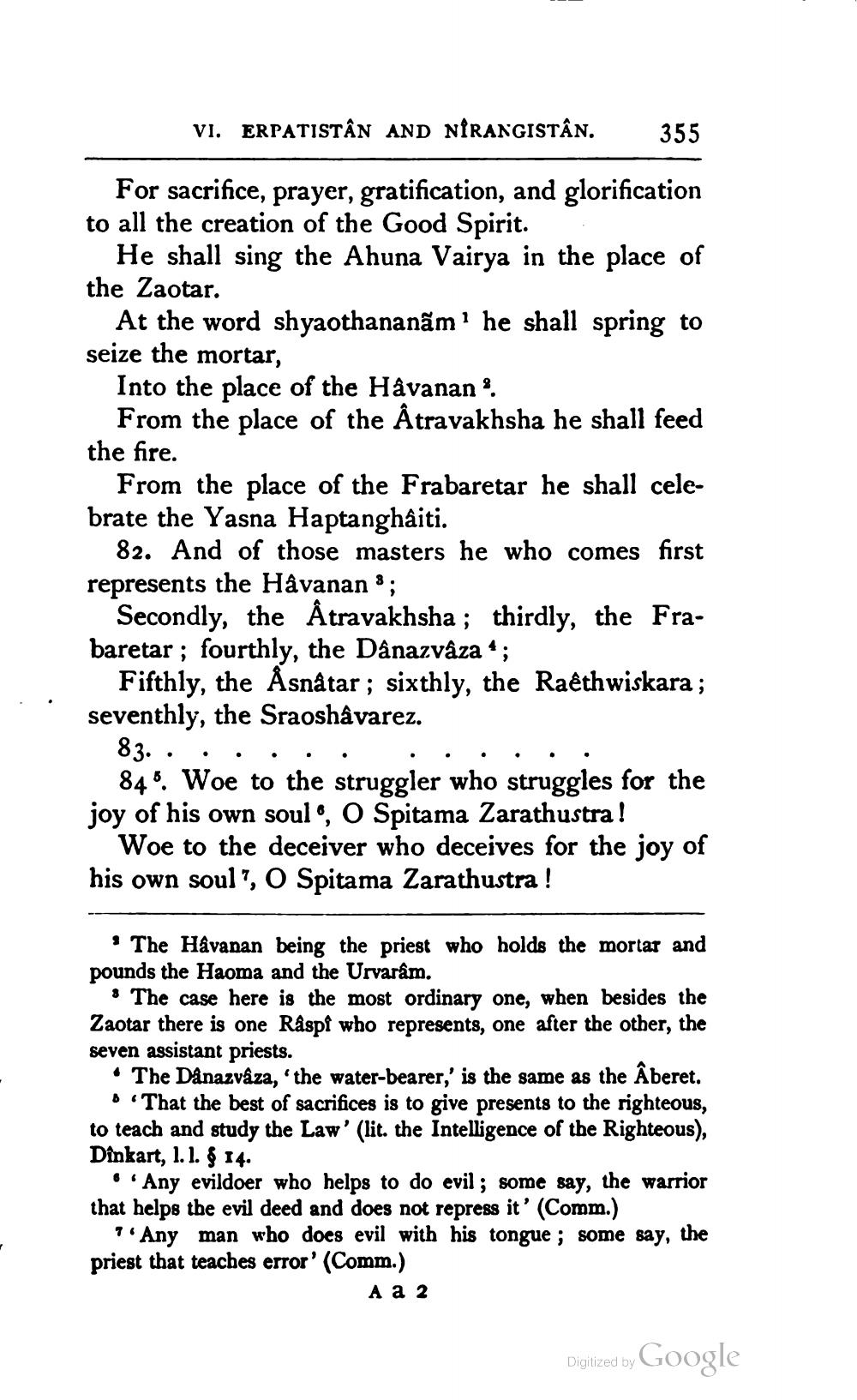________________
VI. ERPATISTÂN AND NIRANGISTÂN.
355
For sacrifice, prayer, gratification, and glorification to all the creation of the Good Spirit.
He shall sing the Ahuna Vairya in the place of the Zaotar.
At the word shyaothananãm' he shall spring to seize the mortar,
Into the place of the Havanan?
From the place of the Åtravakhsha he shall feed the fire.
From the place of the Frabaretar he shall celebrate the Yasna Haptanghaiti.
82. And of those masters he who comes first represents the Havanan > ;
Secondly, the Åtrayakhsha ; thirdly, the Frabaretar ; fourthly, the Dânazväza *;
Fifthly, the Åsnâtar ; sixthly, the Raethwiskara ; seventhly, the Sraoshâvarez.
83. . . . . . . . . . . . .
84% Woe to the struggler who struggles for the joy of his own soul, O Spitama Zarathustra!
Woe to the deceiver who deceives for the joy of his own soul", O Spitama Zarathustra !
· The Havanan being the priest who holds the mortar and pounds the Haoma and the Urvarâm.
• The case here is the most ordinary one, when besides the Zaotar there is one Råspi who represents, one after the other, the seven assistant priests.
• The Dånazvaza, 'the water-bearer,' is the same as the Âberet.
• "That the best of sacrifices is to give presents to the righteous, to teach and study the Law' (lit. the Intelligence of the Righteous), Dinkart, 1. 1. $ 14.
..Any evildoer who helps to do evil; some say, the warrior that helps the evil deed and does not repress it' (Comm.)
7. Any man who does evil with his tongue ; some say, the priest that teaches error' (Comm.)
A a 2
Digitized by Google




